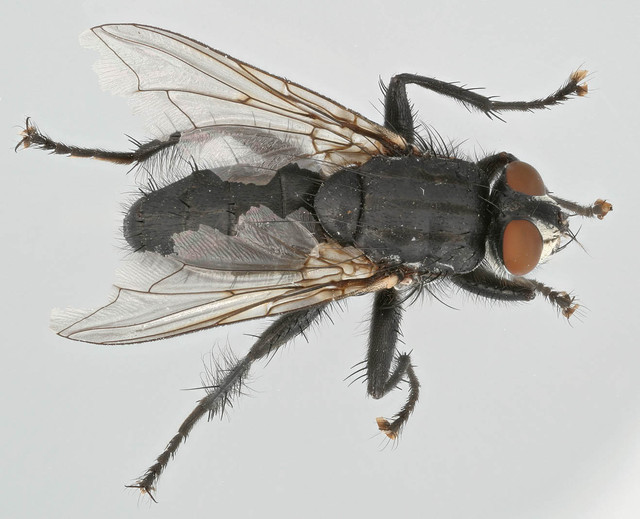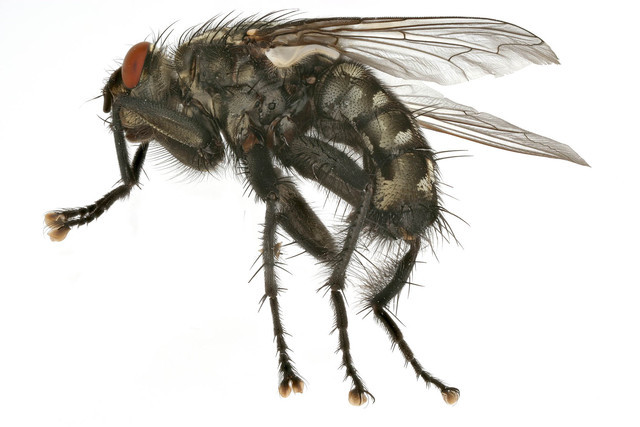

Reproduction
Sarcophaga carnaria, more commonly called the European flesh
fly, undergoes complete metamorphosis during its life cycle.
This means that the larval stage looks completely
different from the adult stage.
The larval stage is specialized for eating and growing,
while the adult stage is specialized for dispersal and
reproduction. The
metamorphosis occurs during a pupal stage (Campbell and Reece,
2008).
The European flesh fly reproduces sexually.
When adults come together and recognize each other as members
of the same species, the male fertilizes the female.
Unlike other organisms, flesh flies are ovoviviparous, which
means that the eggs are not deposited after the fertilization is
complete. Instead the eggs
hatch in the organism’s uterus, and the larvae are held until the
female can find a suitable host. Some examples of hosts can be found
on the link at the bottom of the page.
The type of host is very variable for different species of
flesh flies. Some flesh flies
utilize other arthropods as hosts, but most use carrion as a host
for their larva. This can be
very useful in forensics. When people want to know the post mortem
interval, which is the amount of time a person has been dead, they
will look at what life cycle organisms such as the flesh fly are in.
This subject will be examined more closely in interactions with
other species. When the fly
finds a suitable host, it will perform larviposition, which means
the release of the larvae onto the host.
The larvae begin feeding immediately.
After about five to seven days, the development of the pupae
is nearly complete and the pupae are ready to pupate; when ready,
the larvae leave the host and find a suitable location.
The pupation process takes approximately three days, after
which the adult flies emerge and start the process all over again.
The whole process from larviposition to emerging as an adult
takes approximately ten days (Diaz and Kaufman, 2013).
To check out the one of the hostest of the flesh fly, Acles
acles, the moose, click
here.
To view another host click
here.
Continue on to
Interactions
Reference Page
Home

